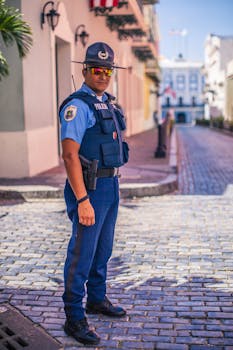In an age of smartphones and social media, recording law enforcement has become a powerful tool for accountability. But it raises an important legal question: Is it actually legal to film the police?
The short answer is yes — but with important limitations. If you record without understanding your rights and boundaries, you could end up facing criminal charges or escalating an already tense situation.
This guide explains your legal rights, real-world boundaries, and best practices for recording police encounters in 2025.
The Legal Foundation: First Amendment Rights
Under the First Amendment to the U.S. Constitution, individuals have the right to:
- Record public officials
- In public places
- As long as it doesn’t interfere with their duties
That includes law enforcement officers performing their official duties in public spaces. Federal courts across the U.S. — including multiple U.S. Circuit Courts of Appeals — have upheld the right to record police, often citing First Amendment protections.
This right applies whether you’re filming with a smartphone, a camera, or even live streaming.
Where You Can (and Can’t) Record
You can legally film the police if:
- You are in a public space (street, sidewalk, park, public building)
- The officer is performing a public duty
- You are not interfering with the officer’s actions
You may face legal trouble if you:
- Enter private property without permission
- Block officers or physically interfere with an arrest
- Ignore a lawful order to move back or maintain distance
- Secretly record where there’s a reasonable expectation of privacy (e.g., bathrooms, homes)
It’s important to stay calm, visible, and non-confrontational while recording.
Can Police Tell You to Stop Recording?
Police cannot legally force you to stop recording just because they don’t want to be filmed.
However, they can order you to step back if your presence is interfering with their duties or creating a safety concern. If you disobey such an order, they can lawfully arrest you — not for recording, but for obstruction.
Some states may also have wiretapping or eavesdropping laws that apply if you’re recording audio without consent in a private setting. In public, though, courts have generally ruled there is no expectation of privacy in interactions with the police.
What If They Ask You to Delete the Video?
You do not have to delete a recording if the police ask — and in most cases, they cannot legally demand it or search your device without a warrant.
The Fourth Amendment protects against unlawful searches and seizures. Deleting your video under pressure could also destroy potential evidence of police misconduct — which is illegal.
If you feel pressured, calmly state:
“I do not consent to any searches or deletion of my property.”
Documenting the interaction, including badge numbers or names, is a smart legal backup.
Can You Be Arrested for Filming?
While the act of filming alone is protected, many people are still arrested during these situations — often under charges like:
- Obstruction of justice
- Disorderly conduct
- Resisting arrest
- Loitering or trespassing
These arrests are sometimes used to deter recording, even if they don’t hold up in court. It’s important to know your rights and avoid actions that could be construed as interfering.
Courts may later dismiss the charges, but the process can still be costly and stressful.
Tips for Recording Safely and Legally
- Stay calm and respectful
- Maintain a safe distance — don’t get physically close to officers
- Hold your phone visible — avoid looking sneaky
- Do not argue or threaten — stay quiet if necessary
- Record badge numbers or patrol car numbers
- Use apps that auto-upload your footage in case your phone is seized
If stopped, you can say:
“I’m exercising my First Amendment right to record in public. I’m not interfering.”
When Things Go Wrong
If you’re arrested or your phone is seized:
- Do not resist
- Ask for a lawyer immediately
- Do not delete anything or share posts until advised by counsel
- Reach out to legal aid groups like ACLU or National Police Accountability Project
You may later have grounds for a civil lawsuit if your constitutional rights were violated during the arrest or search.
State-by-State Differences
While federal courts have largely upheld the right to record public officials, not all states treat it the same way.
For example:
- Massachusetts and Illinois have stricter audio consent laws — recording both video and audio without all-party consent may be risky
- California, New York, and Texas are generally more permissive
Be especially cautious when:
- Recording inside police stations
- Recording during protests
- Filming undercover officers or sensitive operations
Even if the law is on your side, local enforcement practices can vary, and staying safe should be your top priority.
Final Word
Yes, you can legally film the police — but only if you do it the right way. The First Amendment gives you the right to record public officials in public spaces, but you must not interfere, escalate, or violate other laws while doing so.
Smart recording is about accountability, not confrontation. Know your rights, protect your footage, and if in doubt, consult a legal professional.
